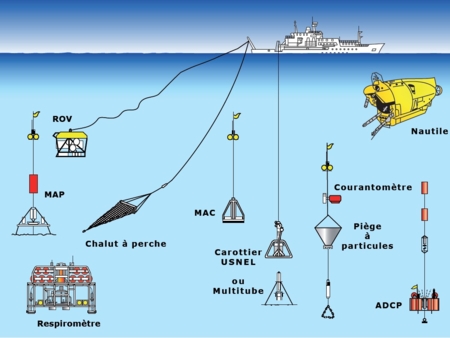Thesis defense of Jie Lyu
Extremophilic viruses from deep sea hydrothermal vents
Please come to Jie Lyu's defense. It will take place in IUEM, Friday 13th of May, Amphi A at 14:00 pm
ABSTRACT
Viruses are estimated to be more abundant than prokaryotes in deep-sea hydrothermal ecosystems. Viruses are known to play essential roles in biogeochemical cycles and contribute to the evolution and adaptation of their cellular hosts.
However, little is known about viral diversity, the nature of virus-host interactions and their functional roles in these extreme marine environments. To date, only 12 viruses have been isolated and characterized from deep-sea hydrothermal vents, including 3 archaeoviruses and 9 bacterioviruses.
To better understand virus-host relationships and the influence of viruses on the microbial compartment in these extreme marine environments, we monitored viral cycles under varying environmental conditions.
In a bioreactor, in continuous culture, we studied a simple microbial community, composed of a bacterium, an archaea and their viruses. MPV1 infects Marinitoga piezophila, a thermophilic, anaerobic and piezophilic bacterium, and the virus "TTLV1" infects Thermococcus thioreducens a hyperthermophilic, anaerobic archaea. Under different parameter changes (temperature variations, sulfur and carbon source starvations), host and virus abundances were monitored by flow cytometry, combined with qPCR analysis targeting the 16S rRNA gene, a viral MCP (major capsid protein) gene and a hypothetical bacterial plasmid gene.
We aimed to explore possible cascade effects caused by potential changes in viral strategies in response to stressors naturally encountered in marine hydrothermal environments. These virus-host interactions may involve horizontal gene transfer and result in enhanced host adaptability to their environment.
The importance of the interaction between viruses and membrane vesicles is also addressed in this thesis.







